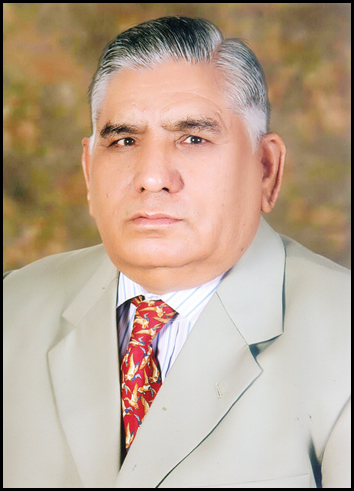

Shaukat Ali Jawaid
During my recent visit to the University of Lahore to conduct a training session for the editors and editorial teams of academic journals initiated by the university, I had the opportunity to meet Prof. M. Amjad, a former Councilor of the College of Physicians and Surgeons Pakistan (CPSP) and former Principal of Services Institute of Medical Sciences (SIMS). He came to see me on January 26, 2025, and after discussing the prevailing issues in the healthcare sector, he extended an invitation.
“A friend, Dr. Tahir Pervaiz, has invited me to meet some doctors attending an Ijtimah at a mosque. If you’re interested, you’re most welcome to join us,” he said. I readily agreed.
We picked up Dr. Tahir Pervaiz, a consultant psychiatrist who retired from the Mental Hospital Lahore, who is affiliated with Tableeghi Jamat for the last many years, and made our way to a mosque in Makkah Colony a densely populated residential area adjacent to Gulberg, Lahore.
At the mosque, I was pleasantly surprised to meet Brig. Bilal Yousuf, a retired cardiac surgeon from the Armed Forces Institute of Cardiology (AFIC). I had previously attended his presentations at conferences and workshops at AFIC, but we had never interacted in detail. Dressed in a shalwar kameez with a white turban, he looked quite different from the uniformed figure I remembered. However, recognizing him was not difficult, and fortunately, he recognized me as well.
Since there were a few minutes left before Maghrib prayers, we had a brief discussion. He mentioned to Prof. Amjad—as both hailed from District Bahawalnagar—that he had spent the past fifteen years in the United Kingdom after retiring.
We offered Maghrib prayers together and later listened to a Bayan (sermon) by a leader of the Tableeghi Jamaat delegation visiting the area. We stayed for Isha prayers and were later served a simple yet fulfilling meal of biryani with yogurt, followed by bananas and dates as dessert. The host, we were told, was a tailor from the area. The experience was deeply humbling, reflecting the contentment and simplicity that keeps such people happy and satisfied despite life’s struggles.
During our discussions, Brig. Bilal shared a fascinating account of his professional journey, filled with challenges and unexpected turns.
“During my training at AFIC, some people did not want me to continue in cardiac surgery as they had their own plans,” he revealed. “One day, the Commandant told me that this specialty was not for me and advised me to choose another field. I heard this several times, which left me worried, frustrated, and depressed. However, fate took a different turn.”
Some developments took place which shifted the Commandant’s focus on me for the time being. Commandant had direct access to President General Zia-ul-Haq hence he would sometime bypass the Surgeon General Office which was not liked. As the luck would have it the Surgeon General Nasir issued a notification nominating me for two years of overseas training in cardiac surgery.
When I returned to Pakistan and reported back to AFIC, no one could deny me the right to work there. However, I was frequently sidelined. My passion for research and publications kept me going, though it was often frustrating. One day, the Surgeon General, Lt. Gen. Mahmud Ahmed Akhtar, asked me, ‘Everyone at AFIC is outstanding. Why are you just average?’ I replied, ‘Sir, I work sincerely, but what else can I do?’” I talked about it in the Unit and later made formal representations to higher authorities. I was given a hearing and told that “You are fit to become a Major General,” but that was the end of it. Disheartened yet resigned to fate, I retired as Brigadier, battling depression and frustration. However, I have firm belief that Allah Pak rewards sincerity and hard work.
Shortly after retirement, vacancies for cardiac surgeons opened in the UK. Despite holding only an FCPS qualification, my sixty research papers published in national and international peer-reviewed journals caught the interviewers’ attention. “During my interview, my research work impressed them immensely. That, more than anything, helped me secure a direct appointment as a Consultant Cardiac Surgeon. I served in that position for over ten years. My salary was five times what I earned at AFIC, along with numerous perks and privileges. That is how an ‘average’ Pakistani cardiac surgeon became the darling of the British!”
He smiled, adding, “Allah rewarded me. All my frustrations faded away. I built my house in Scotland, where I worked. One of my sons became a cardiac surgeon, while the other pursued dentistry. Now, I divide my time between the UK and Pakistan—six months in each. In Pakistan, I spend two months in Lahore and the rest in my village in Bahawalnagar, where we have installed a water filtration plant and continue to work on improving living conditions through community service.” I am grateful to my institution which provided me enough opportunities for training and professional development and I was able to serve my country.
His story highlights significant flaws in Pakistan’s healthcare and governance systems, particularly the bureaucratic hurdles, workplace politics, and the subjective influence of Annual Confidential Reports (ACRs) in career progression. Many talented professionals are either discouraged or driven away due to systemic inefficiencies, leading to a massive brain drain to developed countries.
Addressing these issues requires serious reforms, merit-based promotions, and a transparent evaluation system to retain skilled professionals and prevent the loss of exceptional talent to the developed world.



